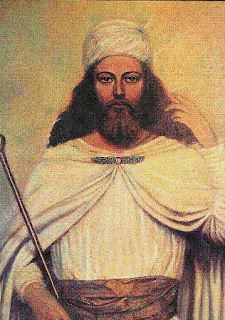Polo, a Persian sport. / چوگان، ورزشی ایرانی
Polo is a team sport played on horseback in which the objective is to score goals against an opposing team. Players score by driving a small white plastic or wooden ball into the opposing team's goal using a long-handled mallet. The traditional sport of polo is played at speed on a large grass field up to 300 yards long by 160 yards wide, and each polo team consists of four riders and their mounts.
Certainly the earliest records of polo are Median (an ancient Iranian people)
چوگان از ورزشهای کهن ایرانی است که امروزه به ورزشی جهانی تبدیل شده است. این رشته به دلیل رواج در میان پادشاهان و بزرگان به بازی شاهان معروف است. نام چوگان از نام چوبی که در آن استفاده میشود برگرفته شدهاست. این بازی در ابتدا عنوانی نظامی و جنگی داشت و سوارکاران ایرانی در آن استعداد اسبهای جنگی خود را به نمایش میگذاشتند.Polo is a team sport played on horseback in which the objective is to score goals against an opposing team. Players score by driving a small white plastic or wooden ball into the opposing team's goal using a long-handled mallet. The traditional sport of polo is played at speed on a large grass field up to 300 yards long by 160 yards wide, and each polo team consists of four riders and their mounts.
Certainly the earliest records of polo are Median (an ancient Iranian people)
امروزه بیش از ۷۷ کشور مسابقات و برنامههای ویژهٔ چوگان برگزار می کنند. چوگان همچنین از جمله ورزشهایی است که از سال ۱۹۰۰ تا سال ۱۹۳۹ به عنوان یک ورزش درمسابقات جهانی المپیک بازی شده و هم اکنون نیز از سوی کمیته بینالمللی المپیک به عنوان یکی از ورزشهای جهانی شناخته شده است اما این ورزش در زادگاه خود ایران چندان مورد اقبال عمومی نیست.






